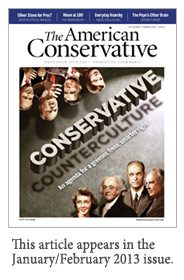The Spy Who Bored Me

Ian McEwen was hailed as brilliant from his first book. A collection of short stories, First Love, Last Rites won the 1975 M. Somerset Maugham award. His reputation only grew in the ensuing years, as he went on to claim the Booker Prize and the National Book Critics Circle Award, among other accolades. His 2001 novel Atonement sold in massive quantities and was made into a fine film. What makes McEwan’s acclaim unusual is that he is not a formal innovator. It cannot be said that he—like, say, David Foster Wallace or Salman Rushdie—bumps forward fiction’s possibilities.
Sweet Tooth, like Atonement, his best book, does have something of a postmodern curvature; the novel incorporates short stories written by characters and a letter at the end that upends some of the previous happenings. But those experiments exist in no sizable quantity, let alone in an especially innovative fashion. Rather, McEwan is highly regarded for the beauty and precision of his prose, and for the depths of his characters.
Passages of some of his books are worthy of the masters. I instance Saturday’s pages-long relation of a squash game. As a player of the game myself, I could imagine few things less engaging than writing about a sport played by two sweaty men inside a small, bland room where conversation is slight and exhilaration slighter. At least David Foster Wallace had tennis played in the spacious outdoors. Yet Saturday’s squash match is told with as much as splendor, observational power, and excitement as any bullfighting recollection to be found in Hemingway or the baseball game opening Philip Roth’s American Pastoral. It is as if the players in Saturday are holding guns, not small racquets.
Unlike Saturday, which focused on a day in the life of a venerable English surgeon, Sweet Tooth is a story with inherent tension. Young, beautiful Englishwoman Serena Frome joins her country’s intelligence service. She is tasked with assisting the war of ideas, as it was called in the Cold War and continues to be in whatever wars we are currently fighting. She works for a shell foundation supporting European anticommunist writers.
Through an unfortunate combination of naiveté and arrogance, she beds the unknowing writer she has been charged with recruiting to Freedom International and, quite predictably, it all ends in disaster. No spoiler is being announced here: the first paragraph in the book says, “Within eighteen months of joining I was sacked, having disgraced myself and ruined my lover, though he certainly had a hand in his own undoing.”
Frome’s unpleasantness is foreshadowed in that last clause. She is critical of herself but not about important matters. She is calculating, capable of deceiving both herself and others. She is intelligent but not as intelligent as she believes. She lies persistently and, most of all, is cold and unprincipled. Speaking about nuclear weapons to a prospective lover she desires to impress, “I repeated a phrase I’d read somewhere—a cliché, I realized later. It would be impossible ‘to put the genie back in the bottle.’ Nuclear weapons would have to be managed, not banned,” she recalls. Tellingly, the sin for which she is censuring herself is one of unoriginality, not dishonesty. She continues: “Actually, I had no particular views on the subject. In another context, I could have spoken up for nuclear disarmament… . I’d announced myself as a trainee Cold Warrior.”
A remarkable admission coming from a future infiltrator. If she was thrillingly amoral, something out of a typical spy novel, the disclosure would be appealing. But in fact Frome courts no adventure; she simply joins the service because the job interview was arranged on her behalf. And then she displays indifference and unprofessionalism in her work.
McEwan has succeeded before in making odious characters likeable. Frome is not one of those characters. We sympathize with anyone but the worst of creatures who tells a story in which he or she suffers. But Frome is not funny enough to be guiltily enjoyed, nor intriguing enough to be appealing.
Sweet Tooth is disappointing because it is so promising. The book’s epigraph alone—“If only I had met, on this search, a single clearly evil person,” a line from Timothy Garton Ash’s book about exploring the files that East German intelligence kept on him—is electrifying. Excepting the final chapter though, that tension is not sustained. For a book about a beautiful, unethical spy, it is decidedly boring.
That is not to say that the novel is entirely devoid of McEwan’s strengths. The prose is, as always, wonderful. We have “post-coital clarity,” a “pearly pink painted nail,” and, appropriate for the 1970s, handkerchiefs supplanted by paper tissues that were “becoming ubiquitous, like supermarket trolleys. The world was starting to become seriously disposable.”
 McEwan retains his capacity for repeating an era. Any reader familiar with the CIA’s funding of various cultural projects during the Cold War will find Freedom International’s fronts and trickery familiar, right down to the organization’s name. The employees of the group are bitingly portrayed, condescending and fraudulent. Sweet Tooth is a reminder that most intelligence agents in the Cold War were not out of James Bond movies. It’s a fine recollection, but it does not nearly approach the best work of one of the world’s premier writers of fiction.
McEwan retains his capacity for repeating an era. Any reader familiar with the CIA’s funding of various cultural projects during the Cold War will find Freedom International’s fronts and trickery familiar, right down to the organization’s name. The employees of the group are bitingly portrayed, condescending and fraudulent. Sweet Tooth is a reminder that most intelligence agents in the Cold War were not out of James Bond movies. It’s a fine recollection, but it does not nearly approach the best work of one of the world’s premier writers of fiction.
Jordan Michael Smith, a contributing writer at Salon and the Christian Science Monitor, is a contributing editor at TAC.